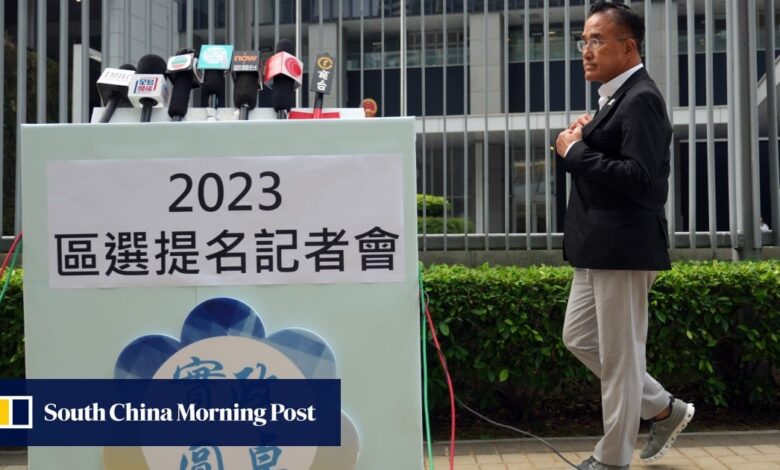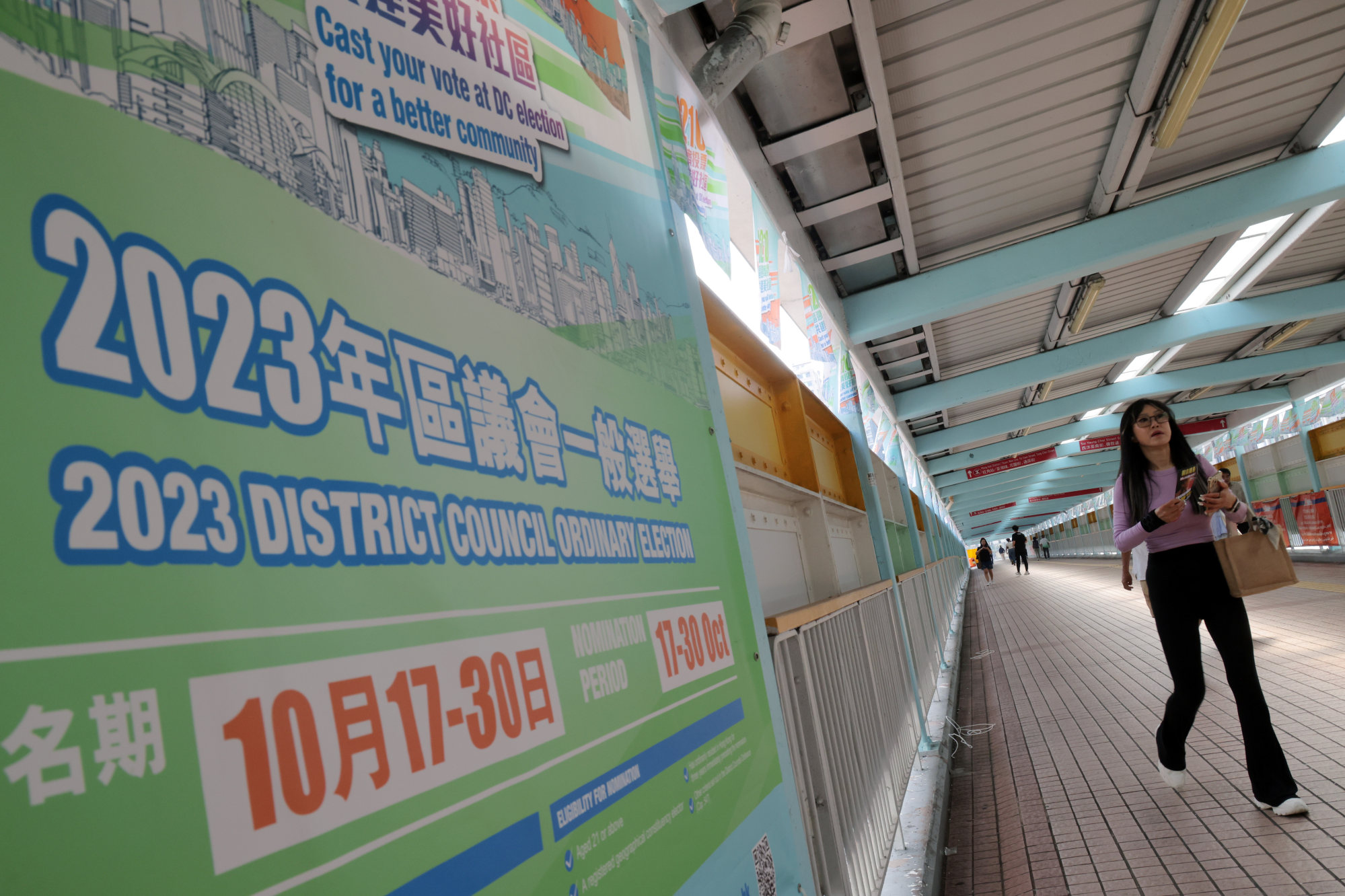Hong Kong district council election: Beijing loyalist parties dominate nominations, analysts predict shift towards ‘less diversity’ in politics

[ad_1]
Candidates from large pro-establishment parties emerged as the big winners as the nominations closed on Monday.
They secured the most signatories for their candidates, but smaller centrist groups struggled to gain enough endorsements to field hopefuls.
The number of directly elected seats in 44 geographical constituencies have been reduced to 88 and another 176 seats will be decided by members of the government-appointed “three committees” stacked with mostly Beijing loyalists, who can also nominate candidates.
A Post count found that 196 – almost half – of the 399 hopefuls who had bagged enough nominations to contest seats through these two channels came from three major political parties.
The Democratic Alliance for the Betterment and Progress of Hong Kong (DAB) secured the most backing, with 121 candidates making up 30 per cent of the total.
The group was followed by the Federation of Trade Unions (FTU), with 46 candidates, and the New People’s Party, with 29.
Hong Kong district council poll to be ‘fierce contest’, despite opposition absence
Hong Kong district council poll to be ‘fierce contest’, despite opposition absence
Several centrist parties said they were disappointed as most of their candidates had failed to secure enough nominations from district-level representatives in the three bodies – area committees, district crime-fighting committees and fire safety committees.
The Roundtable group had hoped to field five candidates in the direct election but only one gained enough endorsements.
Only one of the seven people put forward by Beijing loyalist political group and think tank Path of Democracy met the nomination threshold.
Two hopefuls from centrist party Third Side were unable to secure enough signatures to run.
“The failure of these parties shows that the middle-of-the-road political philosophy has a diminished role under the electoral overhaul that highlights patriotism,” political analyst Lau Siu-kai, a consultant at semi-official think tank the Chinese Association of Hong Kong and Macau Studies, said.
Hong Kong’s Democratic Party fields fewer-than-expected candidates for coming polls
Hong Kong’s Democratic Party fields fewer-than-expected candidates for coming polls
He added the pro-democracy backgrounds of some of the founders of the political parties were still considered a “burden” when they sought to gain nominations for their colleagues.
Traditional parties, in contrast, had “more established internal mechanisms” to screen the political opinions of their members, allowing nominators to be more confident in supporting them.
Political commentator Sonny Lo Shiu-hing said party politics in the city would shift and become less varied.
“I believe this is a kind of deliberate fragmentation of ‘mosquito parties’ by Beijing to enhance unity and centralised coordination of the pro-establishment bloc,” he said.
“The diversity of voices is bound to be reduced for the sake of national security gatekeeping.”

A veteran campaigner from DAB, who asked not to be identified, dismissed concerns that the revamped system favoured big, traditional parties.
“One has to note that 70 per cent of our hopefuls stood in the 2019 poll. They lost but chose to stay in the community to serve the residents,” he said.
“The results showed that their efforts have been recognised by nominators.”
He added that the party planned major canvassing campaigns in the lead up to the poll, with the aim to promote dozens of young candidates backed by political heavyweights.
Lawmaker Tik Chi-yuen, the chairman of Third Side, said his party was frustrated by the disinterest and cautious attitude of nominators in the provision of support.
“We are not sure what can be done to secure enough nominations next time, Tik said. “One way worth trying is to build more communication channels with these nominators in the future.”
But he added the party’s centrist politics were not the problem.
Tik said the party had representation in the legislature and worked well with Beijing loyalist groups.
[ad_2]
Source link





